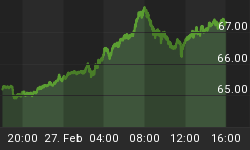In an interview with Bloomberg's Michael McKee, which aired on Bloomberg Surveillance, Federal Reserve Bank of Chicago President Charles Evans says he doesn't see inflation rising to 2% "for a few years." He says he sees pressures holding down inflation and sees "many signs of continued resource slack."
Highlights:
On inflation outlook and recent forecasts:
"Inflation, I think that the underlying fundamentals continue to indicate to me, my inflation outlook is for 1.5 to 1.75 for a couple of years. And I don't expect to get up to 2 percent for a few years."
"So I think there continues to be pressures that are going to hold that down. If we get above 2 percent, then that will be a sign that things are doing better I think. And you know, frankly, it is not a catastrophe to overshoot inflation by some amount. Two percent is our target; that does not mean we have to stay below 2 percent.. We need to average 2 percent. So even a 2.4 percent inflation rate, if it's reasonably well-controlled and the rest of the economy is doing OK and then policy is being adjusted in order to keep that within the, you know, under 2.5 percent range, I think that can work out."
On when inflation starts to be affected by unemployment:
"I think it is more like the normal rate that we used to think of before the crisis, something in the 5 to 5.25 percent unemployment rate. That's what I take to be the sustainable rate, so at 6.1 percent we still have quite a ways to go."
On resource slack:
"I think that the low wage growth to date is indicative of that as well. Plus the lower inflation. So I think there are many signs of continued resource slack."















